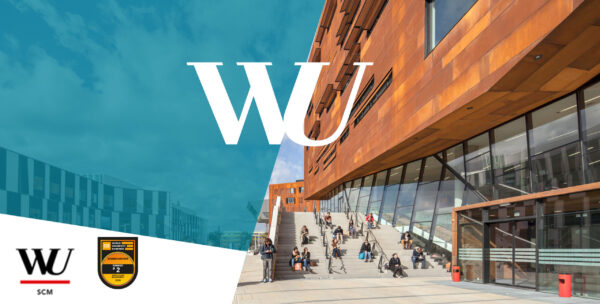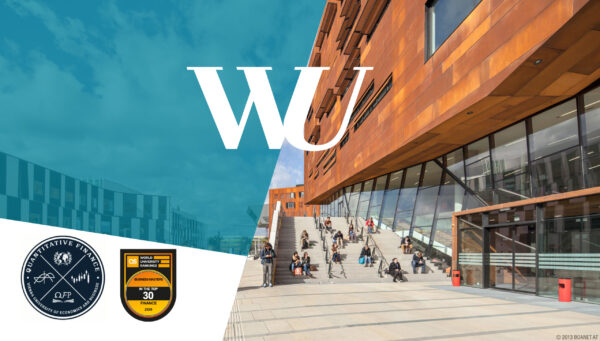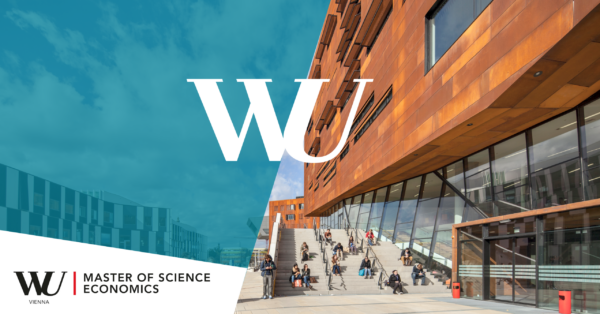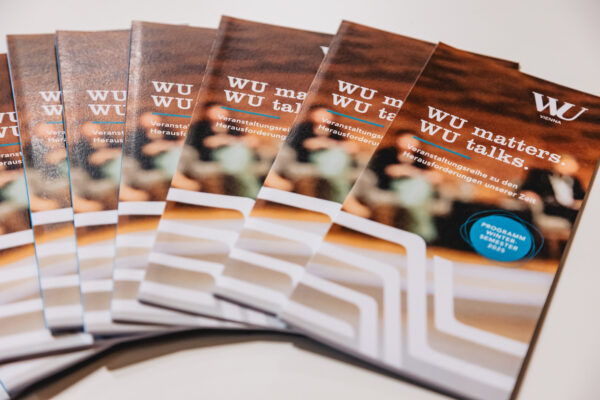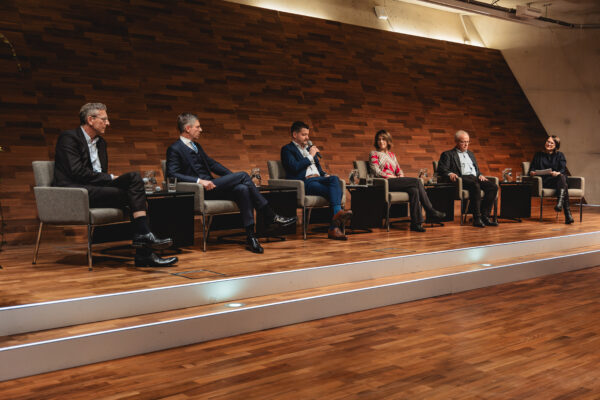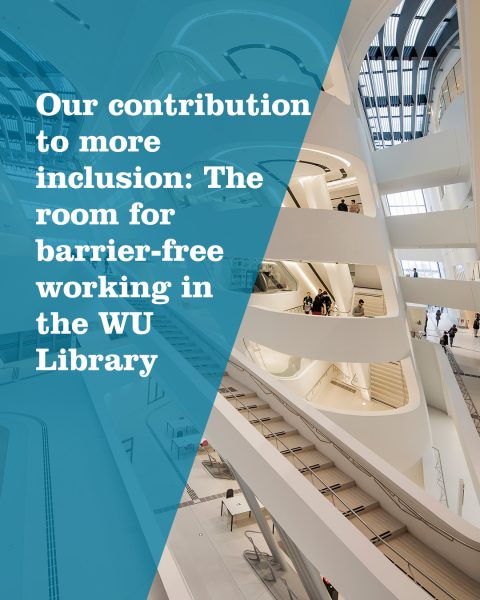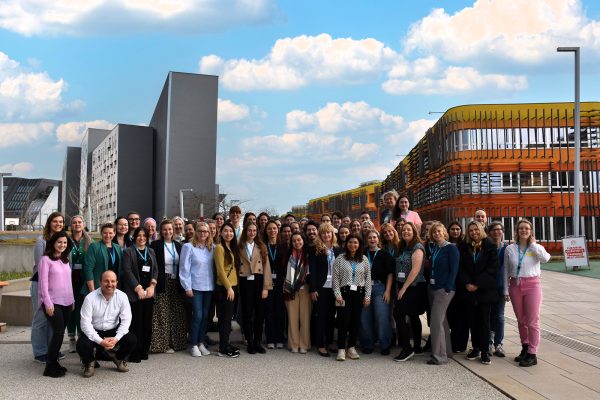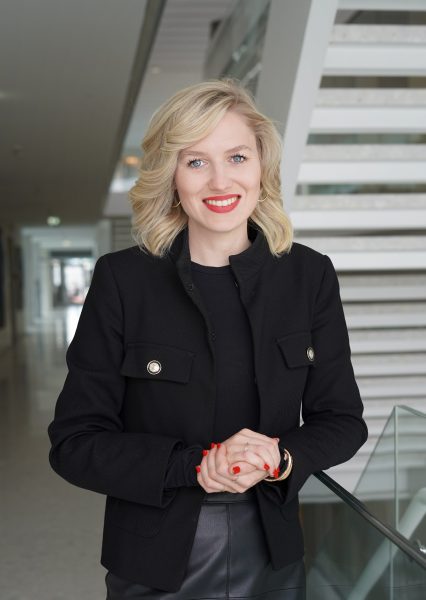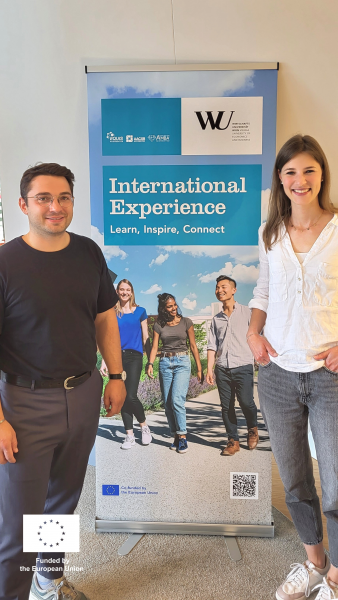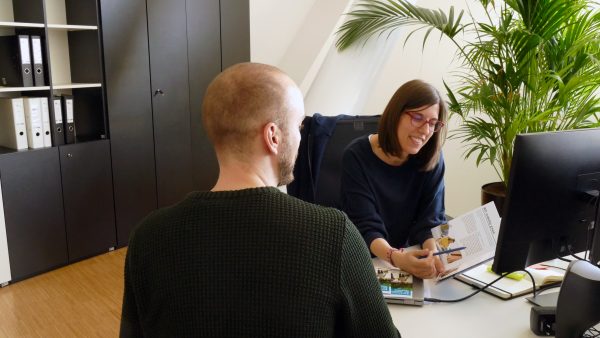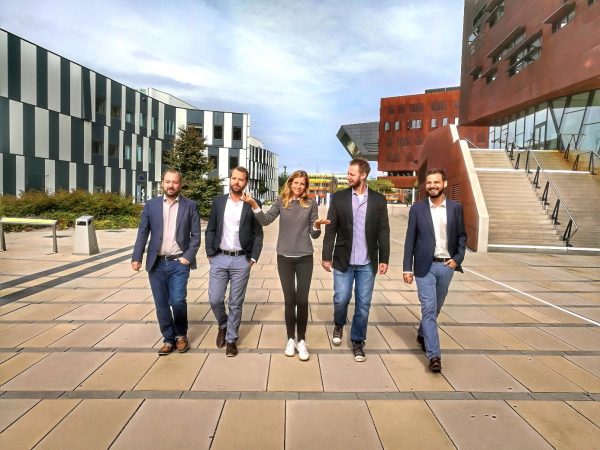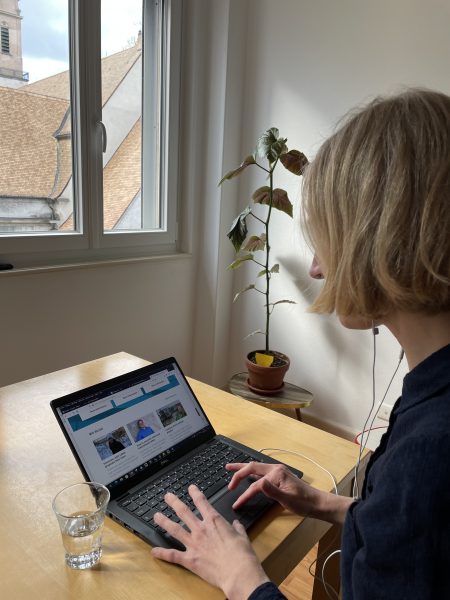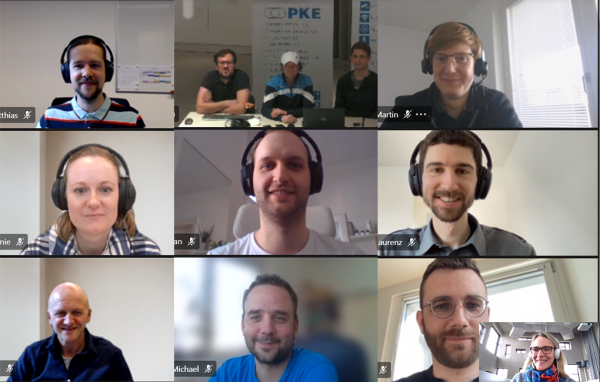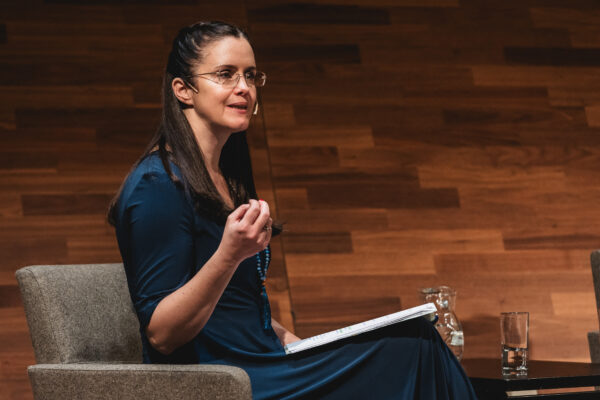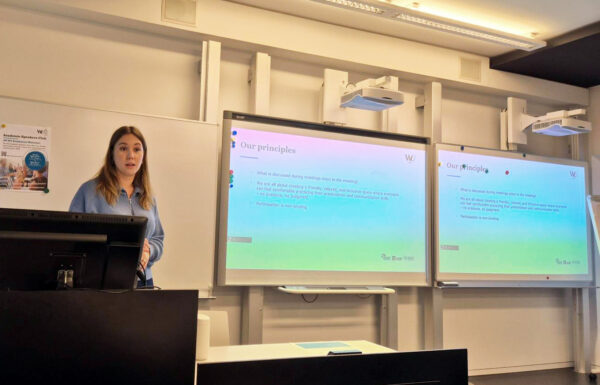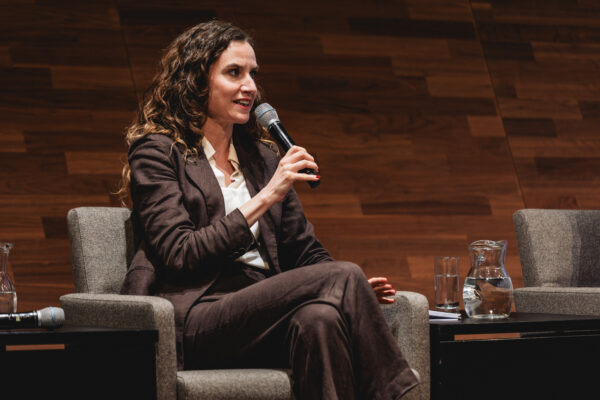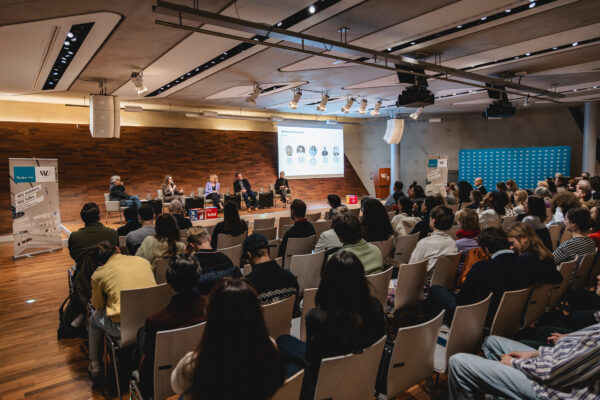Master’s programs – Are they worth it?
Thanks to the Bologna reforms, graduates with a bachelor’s degree are generally young, well educated, and prepared to start their career. In spite of this, many companies look for candidates with an additional master’s degree. Students who decide to spend another two years in the classroom, however, usually have to rely on financial support from home for that much longer. At the end of the day, whether a graduate degree will pay off financially or increase your chance of finding a job after graduation is an individual decision. To help you make up your mind, we’ve asked WU master’s students why they decided to go for a graduate degree and what they see as the pros and cons of their programs.

Martin Groiss (24) is a student in the MSc program in Economics. Before starting the program, he graduated from the BSc in Business, Economics and Social Sciences at WU, with a major in Economics and Socioeconomics.
What was your main reason for choosing this program, and has it fulfilled your expectations?
I decided to enroll in a graduate program because after completing my bachelor’s degree at WU, I didn’t feel like I had finished my education in economics. I think the second phase of the BSc program is good in helping students get oriented and build up a solid knowledge base, but it does only leave two years for further economics-related material and methods, and there are several areas that are touched upon only briefly or not at all. I chose the Economics MSc program at WU because I want to specialize in financial policy and because it’s important to me to have enough courses in macroeconomics. From an organizational perspective, I was disappointed by the first semester. It is divided up into two half-semesters and unnecessarily stressful, since the introductory phase of the semester doesn’t start until mid-October.
“I decided to enroll in a graduate program because after completing my bachelor’s degree at WU, I didn’t feel like I had finished my education in economics.”
What are the disadvantages of enrolling in an MSc program?
For me personally there are no real disadvantages to being in a master’s program. Of course, you can’t work full time as a student and you have to get by with little or no own income, but that’s a challenge faced by all students at one point or another. You can use the three-month summer break to get practical work experience, or take a short leave for an internship during your studies.
What kind of professional experience have you already been able to gain, and where do you see yourself after graduation?
Until now, I have gotten some work experience during a summer internship at Erste Bank and a six-month internship at the OeNB Oesterreichische Nationalbank in the banking supervision department. This semester, I will also have the opportunity to find out what life as a university tutor is like. After graduation, I would like to work in the central bank sector, dealing with the effects of monetary policy and banking regulations on the economy.

Sarah Haubmann (22) is currently taking the master’s program Business Law at WU. She has a bachelor’s degree in Business Law from WU, and specialized in “Insolvency and Restructuring” as well as “Change Management und Management Development.”
What was your main reason for choosing this program, and has it fulfilled your expectations?
I knew from the start that I wanted to continue with a master’s program after completing my bachelor’s degree, because that’s the only way to become fully qualified for all key legal professions. In the bachelor’s program, the approach to solving a problem was simply to consult the legal codes, which I often found unsatisfactory. In the master’s program, we focus more on the reasoning behind legal regulations and you can develop more of an understanding for why lawmakers decide on specific regulations.
What are the disadvantages of enrolling in an MSc program?
A master’s program is very time-intensive, as attendance is required in most courses. That makes it harder to have a job, but it’s not impossible to work during the program.
“In the master’s program, we focus more on the reasoning behind legal regulations!”
What kind of professional experience have you already been able to gain?
I started working as a junior researcher at the Institute for Austrian and International Tax Law this semester. This job is easy to coordinate with my master’s program and gives me a first insight into what an academic career might be like.
Have you already made professional or academic plans for the future?
I’m currently considering spending a semester at a university abroad. After graduation, I plan to complete my traineeship at court.

During his bachelor’s studies, Florian Ott (26) majored in Business Administration with specializations in “Finance” and “Entrepreneurship und Innovation.” He is now a recent graduate of WU’s Strategy Innovation and Management Control master’s program.
Why did you choose this master’s program?
It’s an English-taught program with selective admission, which helps the program maintain a high level of quality. I also really appreciated the way the courses combined theory and practice, the program’s strong international focus, and the overall combination of strategy, innovation, and entrepreneurship elements. The strong network of SIMCies, supported by the SIMConnect association, was a further motivation for me. It may sound strange, but there really is a SIMC Spirit.
“There really is a SIMC Spirit!”
What are the disadvantages of enrolling in an MSc program?
I considered going straight to work after getting my bachelor’s degree, but at the end of the day, I have never regretted continuing on with the master’s program. It is possible to hold a job while studying, even though it’s officially a full-time program. A lot of people would rather just enjoy student life, though.
Did you work during your studies, and do you have plans for the future?
I always held a job during my studies, so I was able to gain valuable experience in areas like office management, financial control, consulting, and event management. I am very enthusiastic about the idea of being my own boss, and have already started working in this direction. The possibilities for the future are wide open, but they will definitely have something to do with digitalization. I’m still trying to decide if I want to launch my own start up, work for a company, or go into consulting.

In addition to the bachelor’s program in Business Law, Vanessa Macho (24) also completed a major in International Business Administration at WU. Now she has enrolled in the Strategy, Innovation and Management Control master’s program.
What was your main reason for choosing this program, and has it fulfilled your expectations?
First and foremost because of the topic itself, but definitely also for the program‘s international character. I wanted to study in English and have the opportunity to do a double degree program or go on an exchange semester abroad. I had also heard that the SIMC students were a very close-knit community, which appealed to me. So far, my expectations have definitely been fulfilled, I’m especially surprised at how close we have become as a group.
“I’m surprised at how close we have become as a group.”
What are the disadvantages of enrolling in an MSc program?
Since I work in addition to my studies and university life is very time-intensive, especially things like group projects but also volunteering for SIMConnect and Entrepreneurship-Avenue, I don’t have much free time for other activities. An all-nighter once in a while is unavoidable.
Were you able to gain any professional experience during your intensive program?
I started working as a ski instructor in Lech when I was 17, and I’ve been doing that ever since. I’ve also had student jobs at SAP and other places. I’ve been working at the innovation consulting firm Wonderwerk for a year now, which gives me the opportunity to put my theoretical knowledge about innovation into practice. We’re a small team at the moment, but that can change fast.
#masterday #masterprogram #master #msc #wirtschaftsrecht #volkswirtschaftslehre



